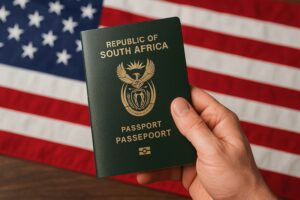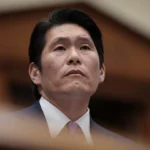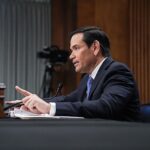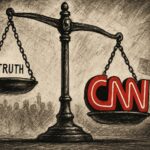⚡ Cutting through noise. Spotlighting the truth.
South African Refugees US Controversy Deepens

A New Refugee Policy Ignites Debate
A fresh wave of controversy has swept through U.S. immigration policy after the Trump-era refugee program welcomed a group of 49 white Afrikaners from South Africa on May 12, 2025. Brought under an executive order framed as humanitarian protection, the South African refugees US policy reignited fierce debate over racial priorities in asylum programs. While the administration cited racial persecution as the reason, officials and observers on both sides of the Atlantic see a more complicated—and politically charged—story.
With refugee practices already under scrutiny across party lines, this new chapter raises tough questions about equity, consistency, and global standards.
Racial Politics in Refugee Policy
At the core of the storm is the Trump administration’s decision to categorize white Afrikaners, historically wealthy and land-owning, as victims of racial repression in post-apartheid South Africa. According to the Associated Press, Deputy Secretary of State Christopher Landau declared, “The United States… really rejects the egregious persecution of people on the basis of race in South Africa and we welcome these people to the United States and to a new future.”
Such assertions have drawn rebuke from the South African government, which has called the claims inaccurate and politically motivated. President Cyril Ramaphosa dismissed the persecution narrative as “completely false,” accusing U.S. officials of relying on misinformation from right-wing lobby groups. Supporters of the policy argue that protecting minorities—regardless of their skin color—is consistent with humanitarian values and long overdue.
Program Details Raise Questions
The 2025 arrival marks the first public implementation of the Afrikaners refugee program. Though small in numbers, the optics have drawn outsized attention. The executive order, signed quietly in late 2024, describes Afrikaners as “an at-risk ethnic minority.” Applicants reportedly passed through expedited screening and have been placed in areas with strong assimilation support.
While similar procedures are standard in other refugee programs, the contrast between this approach and past delays or denials for persecuted Christians from the Middle East or dissidents from Africa and Asia has not gone unnoticed. Supporters frame the policy as course correction, while critics point to selective prioritization.
The issue echoes past controversies, such as the treatment of political movements in Europe—see Tyranny in Disguise: Rubio Slams Germany’s AfD Crackdown—where global norms clash with national narratives.
Pushback from the Global South
The move sparked immediate backlash in South Africa. According to PBS NewsHour and other outlets, local officials and media condemned the refugee classification. Many emphasized that Afrikaners still hold significant economic and educational advantages, and that characterizing them as oppressed minorities distorts the country’s post-apartheid recovery efforts.
Critics also argue that this policy undermines South Africa’s attempts to heal historical wounds. Apartheid, which legally suppressed the Black majority until 1994, left generational wealth in Afrikaner communities. Some South African analysts warn that reframing Afrikaners as victims risks derailing ongoing reconciliation and fairness initiatives.
Yet from a Western-rights perspective, advocates say minority protection shouldn’t depend on majority guilt—or be erased by political sensitivities.
Political Divide in the U.S.
In the United States, reactions to the refugee acceptance split across ideological lines. Conservative voices praised the policy as finally recognizing overlooked white minorities, especially Christian groups with Western values. Supporters argued the move highlights long-standing imbalances in refugee advocacy and media framing.
Progressives, on the other hand, interpreted it as racial favoritism, citing previous restrictions on African and Middle Eastern asylum seekers. Critics argue the policy prioritizes those who resemble the majority U.S. population while sidelining others facing far worse conditions.
Public opinion isn’t entirely partisan, however. Some independents and moderates questioned the prioritization of a relatively affluent ethnic group over persecuted dissidents with fewer resources.
For context on how U.S. foreign policy shapes domestic discourse, see Trump Tariffs Drive Poll Surge, where optics and timing influence public sentiment.
Expert Insights
Deputy Secretary of State Christopher Landau doubled down on the administration’s rationale when addressing the arrivals at Dulles Airport: “The United States… really rejects the egregious persecution of people on the basis of race in South Africa and we welcome these people to the United States and to a new future.”
Landau’s words aimed to position the move as humanitarian, but critics saw a deeper ideological subtext—particularly in an election year where immigration is once again front and center.
Conflicting Narratives
Claims of widespread persecution are disputed. South African think tanks and journalist groups have challenged the statistics behind the Afrikaner refugee rationale. Reports show a decline in violent crime and no evidence of state-led campaigns against white citizens.
Trump-aligned voices maintain this isn’t just about crime—it’s about cultural alienation, reverse discrimination, and loss of institutional standing. They argue that modern policies in South Africa are aimed at social engineering, and that these families have legitimate fears and diminishing protections.
Reader Questions
Why did the U.S. accept Afrikaners as refugees in 2025?
The Trump administration cited racial discrimination, claiming Afrikaners face threats to their identity and safety. Supporters saw it as a move to protect a minority group often left out of refugee conversations. Critics dispute the framing and question the criteria used.
Are Afrikaners being persecuted in South Africa?
The answer depends on perspective. While no state-led persecution has been confirmed, some Afrikaners report feeling targeted by affirmative action policies and isolated in public discourse. Critics of the U.S. policy say these claims don’t meet international definitions of persecution.
What was the reaction in South Africa to the U.S. resettlement program?
South African officials condemned the move, calling it a distortion of reality and a setback to reconciliation. Analysts echoed that view, saying it sends a dangerous message about historical accountability and modern policy narratives.
Wrap-Up
- The South African refugees US program has sparked global and domestic controversy.
- U.S. officials cited racial persecution, but critics challenge the accuracy and motive.
- The decision fits broader Trump-era themes of Western alignment and demographic signaling.
- Backlash from South Africa reflects deeper wounds around race, memory, and truth.
- As immigration becomes a 2025 flashpoint, this case may shape both foreign and domestic debates.




